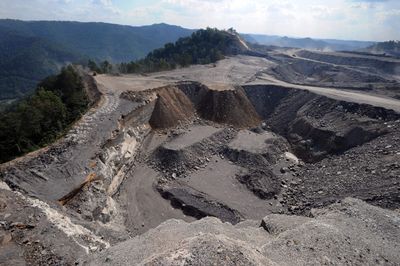EPA delays mountaintop mining permits
Agency to evaluate environmental impact

WASHINGTON – The Environmental Protection Agency put hundreds of mountaintop coal-mining permits on hold Tuesday to evaluate the projects’ impact on streams and wetlands.
The decision by EPA administrator Lisa Jackson targets a controversial practice that allows coal mining companies to dump waste from mountaintop mining into streams and wetlands.
Between 150 and 200 applications for new or expanded surface coal mines, many mountaintop removal operations, are pending before the federal government. EPA spokeswoman Adora Andy said the agency does not expect problems with the overwhelming majority of permits.
The permits are issued by the Army Corps of Engineers, an agency that has been criticized by environmental groups and has been sued for failing to thoroughly evaluate the environmental impact of mountaintop removal.
Under the Clean Water Act, companies cannot discharge rock, dirt and other debris into streams unless they can show that it will not cause permanent damage to waterways or the fish and other wildlife that live in them.
Last month, an appeals panel in Richmond, Va., overturned a lower court’s ruling that would have required the Corps to conduct more extensive reviews. The appeals court decision cleared the way for a backlog of permits that had been delayed until the lawsuit was resolved.
The EPA has the authority to review and veto any permit issued by the Corps under the Clean Water Act, but under the Bush administration it did that rarely.
The EPA action stunned the coal industry, which had been breathing easily since the mid-February ruling by the 4th Circuit Court of Appeals.
Mountaintop mines in West Virginia, Virginia, Kentucky and Tennessee produce nearly 130 million tons of coal annually – about 14 percent of the nation’s power-producing coal – which in turn generates electricity for 24.7 million U.S. customers, according to industry estimates.
The low-sulfur, high-energy coal produced from those mines is not easily replaced. The industry has long maintained that eliminating mountaintop mining will lead to increased imports from countries that have far fewer environmental safeguards.
The practice has a huge economic impact in Appalachia. Mountaintop mines employ some 14,000 people across the four states. Wages average about $62,000 – high pay for rural Appalachia – and states make millions in taxes.